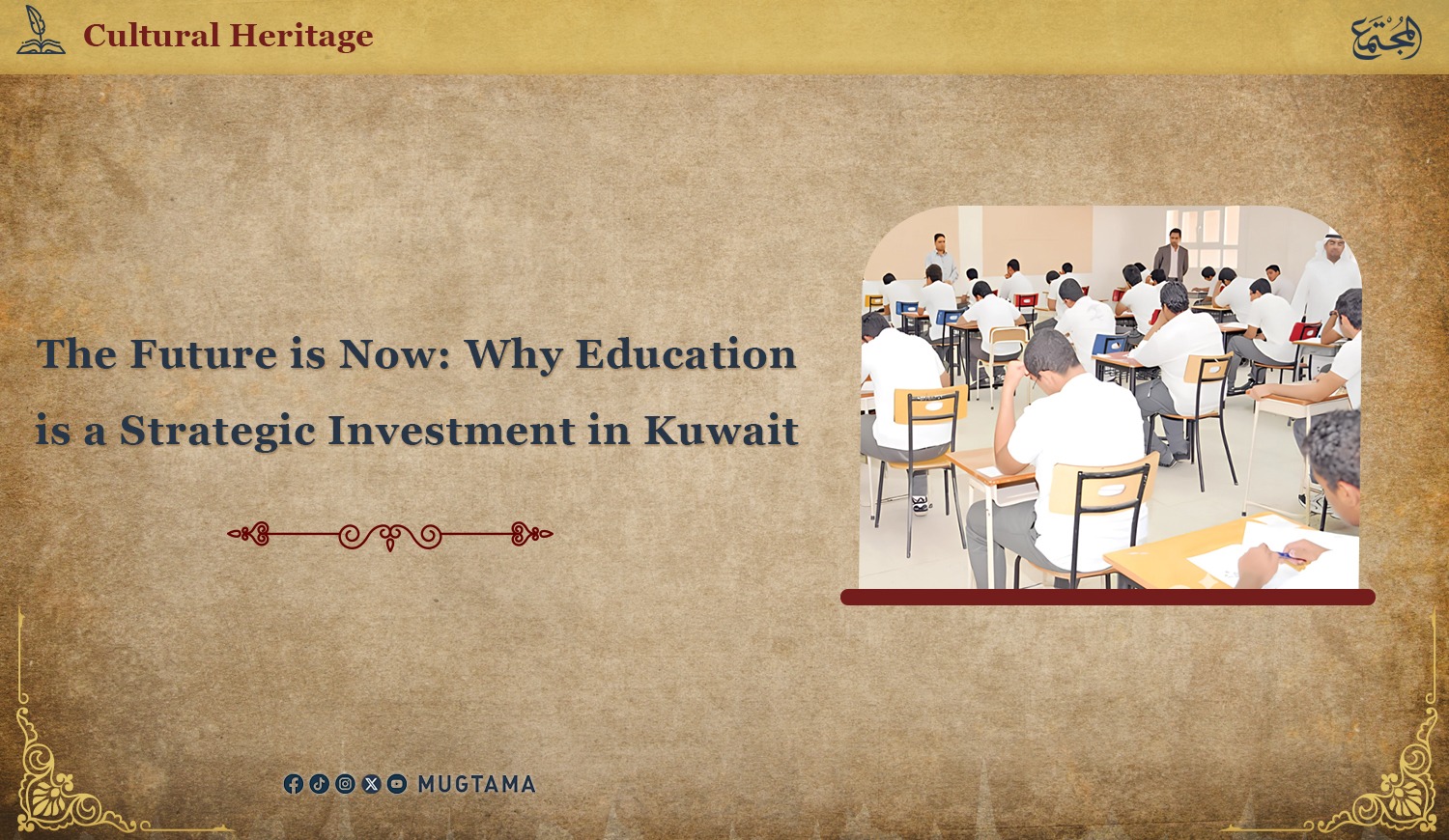The Future is Now!
Why Education is a Strategic Investment in Kuwait

As we welcome the new academic year with optimism and hope for a bright future for the next generation, we must commend the Ministry of Education for creating all the necessary conditions for a smooth start to the school year.
The vast sums of money the state has allocated and continues
to allocate educating and nurturing the young are not wasted. Education is no longer seen
as a consumable social service provided by the state to its citizens, but
rather a long-term investment aimed at creating diverse human resources and
employing these polished and well-prepared talents honed during their school
years. This is the surest guarantee of a nation's progress and advancement.
In this context and based on this concept, the Ministry
of Education has always strived to ensure this investment process is
carried out under the best conditions and yields the best results. We are
comfortable with the great progress Kuwait has made in a short time in the
field of education. There is no need for further proof, as the number of
students entering schools this week and the increasing number of graduates year
after year are the best evidence of what we are saying. However, we always
aspire to what is better and want to learn from our experience over the past years
to avoid anything that could disrupt the educational process.
Reviewing Educational Curricula
The first observation:
We must applaud the idea of reviewing the educational
curricula adopted by the Kuwaiti
Ministry of Education. We hope the results of these reviews will be
applicable and align with our general educational choices.
Time is changing rapidly, and educational theories are in
constant development. We want our educational curricula to keep pace with
progress and development and not remain stagnant. Change and movement are signs
of alertness, while stagnation and decay are signs of decline and backwardness.
It should be noted that we are not asking for change for the sake of change but
for a higher educational level, an easier and simpler way of comprehension, and
for students to be better in knowledge, morals, and religion.
Theoretical vs. Applied Education
The second observation:
which is closely related to what we have already said,
revolves around the imbalance between theoretical and applied education. One of
the problems of education in Kuwait,
as in developing countries in general, is the dominance of theoretical
education over technical and vocational education. At the same time, these
countries are in dire need of highly skilled and semi-skilled technical and
even skilled workers in all specializations. One of the reasons for this
imbalance is our view (which, thankfully, has started to change) of a
profession as a form of degradation. Therefore, this issue must be given the
attention it deserves, and vocational and technical education must be
encouraged, with its content adjusted to suit the requirements of different
professions, industries, and jobs in society. In other words, there must be a
link between this type of education and the needs of society so that our
schools do not produce hordes of unemployed people, as is the case with
theoretical education in some Arab and developing countries.
Researchers in educational affairs have found that many
students have a practical mindset and a
desire to work with their hands. In fact, they have talents that remain
suppressed if they are not given the opportunity for vocational education. It
is unfair to demand they succeed in theoretical education.
As we begin a new academic year, we can only hope that the
Ministry of Education will continue on the path of development and refinement
it has taken. We are optimistic because the Kuwaiti Ministry of Education has
been giving special importance to the issue of vocational education for some
time, and we hope it will continue its diligent efforts to create a strong
tradition of vocational education.










